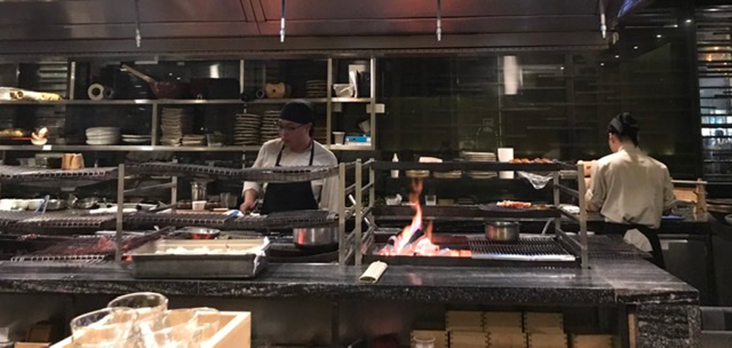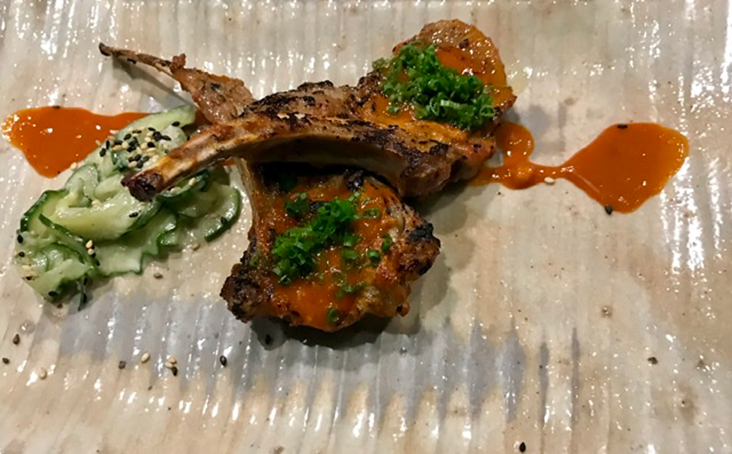AUCKLAND, April 10 — This could well be our last meal before the lockdown.
Restaurants will close. There will be no takeaway or meal deliveries, not like back home in Malaysia.
Level 4 lockdown in New Zealand is terribly thorough. And with no incoming guests due to worldwide travel disruption, the hotel we’re staying at will be shuttering too.
So we aren’t our usual selves when we walk into the restaurant. We aren’t hankering after “a contemporary twist to the traditional robata style of cooking over an open charcoal grill” but it is next to our hotel.
We had been wandering the streets of Auckland all day, exhausted from repeated visits to a travel agency; this will do.
The hostess at the front of house greets us with a grim, icy smile. It never reaches her eyes; if it did, they’d be frozen over, we reckon. It’s just as likely she is simply being professional and we are grumpy.
Do we have a reservation? No. We can fit you at the counter, with a great view of the chefs cooking. Sure, that’ll be fine.
Then she tells us, with terse apologies, that we’d have to fill up a quick form with our details: names, contact number, name of hotel.
“The authorities require it, I’m afraid,” she announces. “Just in case. So we’d be able to contact anyone if anyone is… affected.”

Just in case there is a Covid-19 case, she means. And they’d have to trace and track down everyone who was in the establishment at the time.
We understand. It’s been this way for the past few days. It’s necessary and prudent. It’s also chilling. Not quite the introduction you want to a good meal but we are merely looking to fill our bellies, to sit down and regroup, to brainstorm solutions we haven’t thought of yet.
To have someone else take care of us, of what to eat, to make sure we have something to drink, that’s plenty enough in a stressful time like this.
Which is why, once we are seated, we eschew ordering à la carte and settle for the set menu. Easier. We are sapped enough without draining our decision-making powers any further.
Our server, a sweet Japanese girl named Riyo, tells us it’s actually a tasting menu. We nod, and she brings us hot green tea.
We sip slowly, trying to warm ourselves and calm our nerves.
In the aftermath of Singapore closing its borders, stranding hapless passengers like us who had to transit at Changi Airport to get home, we feel helpless and out of options.
Food arrives, one course after another.
Shebicchi taco, ceviche with a hint of miso and Mexico. Sashimi sanshu mori; we chew slices of raw tuna and salmon dutifully. We need the protein.

It’s slowly dawning upon us that we weren’t going home anytime soon. Anything to fill the belly.
When Riyo returns with chirashi tempura maki spiced with jalapeño mayonnaise and buta niku kimchi gyoza with pickled cucumber, she observes our sombre mood. She asks us if everything is alright.
We lie, naturally. Everything is ok. Just travel issues. Thanks.
She nods. Servers are trained to be polite, even when guests are rambling, as we are.
Then she breaks out of character and tells us that she understands, she’s having travel issues too. No idea if she’d get her work visa now that the Level 4 lockdown is looming. Now that Covid-19 seems to be everywhere.
The uncharitable part of me thinks: Well, at least she’ll have a roof over her head. When our hotel closes its doors tomorrow, we might have to sleep on the streets.
But that thought disappears as soon as it arrives. Her predicament is more moving. I am moved by the stories of others like her, folks in the food industry.

Why wasn’t I moved before? I have many friends in this line; now I wonder how their small restaurants and cafés will survive in the ongoing MCO lockdown back home. Will my regular chicken rice stall be around when it’s all over?
This pandemic and its long, long shadow won’t be easy on any of us.
Riyo comes back, this time with yasai no moriawase (vegetable tempura) and kyouno teriyaki, smoky with blackened chilli.
I ask her if she’s here on a working holiday, where is she from. Sort of, and Japan. We learn how many food workers will be out of a job, given the impermanent nature of their employment. It’s not just here; it’s everywhere.
We are in Auckland but now I’m wondering if my favourite baristas in KL even have medical insurance. It’s a sobering thought.
Broccoli shinme, tender stems slathered with moromi miso and ginger dressing. Kankokufu kohitsuji: lamb cutlets roaring with goma and gochujang. We taste these, our senses recovering.
As she places the satsumaimo course — a dish of kumara (as sweet potatoes are known in New Zealand), sesame seeds studding its sticky glaze — before us, Riyo tells us she’s hopeful. Things will turn out fine. You need some faith to survive in this industry.

We are rejuvenated by her words. We don’t realise yet that we’d be stranded for another two weeks in Auckland, to be followed by another two weeks of quarantine once we’re back in our tanahair.
It doesn’t matter. Right now we are charged up, ready to tackle whatever comes our way. We have our appetites again.
When Riyo returns, we ask, with great anticipation: “So what’s for dessert?”






















